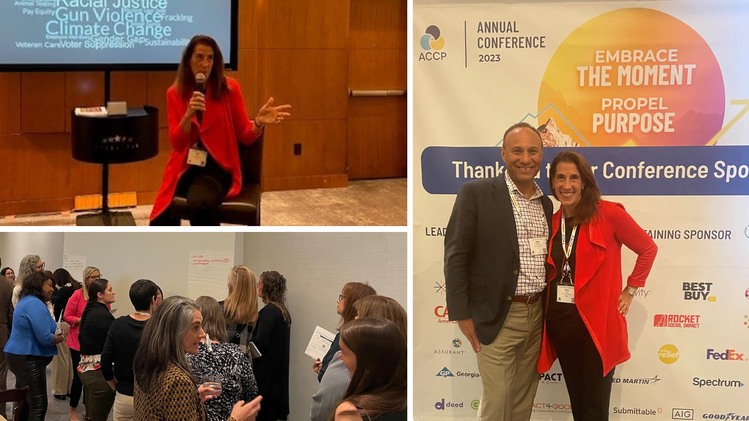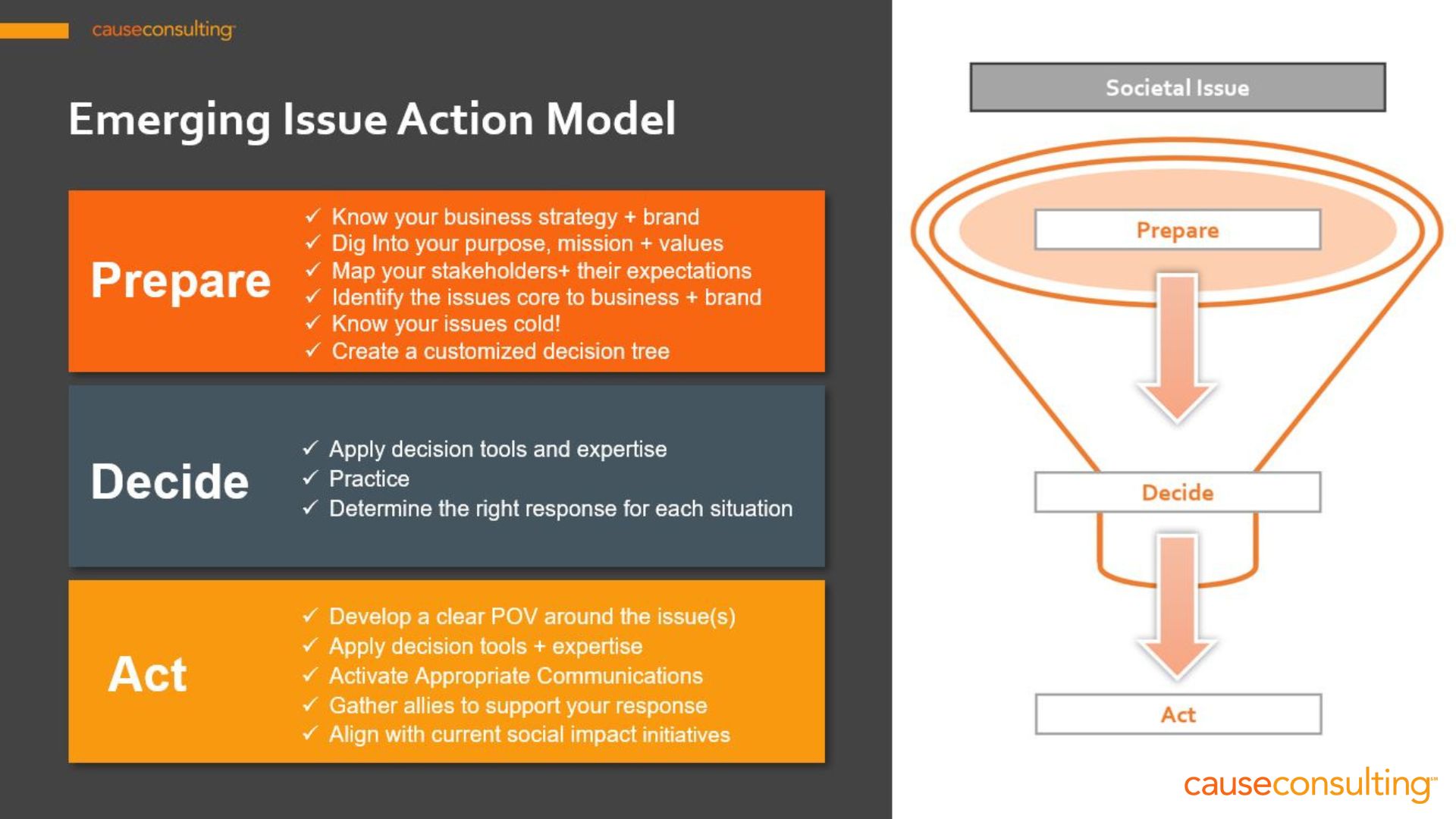
We entered this year’s Association of Corporate Citizenship Professionals Annual Conference with many varied emotions as we watched the news about the terrorist attacks in Israel and the humanitarian crisis. Mark Feldman and I felt sadness, anger, and empathy, in addition to an enormous desire to help companies effectively and appropriately respond to the crisis. Candidly, we were concerned that so many companies have been silent around this issue. We decided to embed the rapidly unfolding events into our workshop on “Strategies for Prioritizing and Responding to Emerging Issues and Crises.”
Although Mark and I have been teaching together for decades, this session felt different. It required a deeper level of personal reflection. It became clear that we had to model best practices and create a safe and intentional space for participants to share their personal and professional feelings. We hope that the three-step Action Model we shared, as well as other tips and resources, will help participants feel more prepared to respond to this and other pressing issues such as affirmative action, natural disasters, abortion, and whatever else may be coming our way next.
There was no question that corporate social impact leaders in attendance were anxious to talk about the Israeli-Hamas war and looking for guidance. Within the first ten minutes of the session, the sixty or so practitioners voiced a range of emotions, from feeling stressed, pressured, and tired, to feeling driven, empowered, and determined. Most in the room were part of extended teams within their companies working on immediate response messages and donations. Some felt their processes were too slow, while others felt the need to ensure their leaders didn’t respond too quickly before considering potential implications. Most felt they needed more guidance in how to be prepared.
Many of the practitioners voiced concern for employees and business partners located in Israel. They shared how their teams are working hard to support colleagues and communities. A few emphasized the importance of avoiding a U.S.-centric view and taking the time to truly listen to the perspectives of those living in the region.
Most participants are in the process of researching organizations to determine where to make donations and create opportunities for matching gifts. There was collective frustration about how to confidently identify nonprofits with expertise, operations on the ground, and trust to provide the necessary aid in the region.
To guide the session and ensure everyone left with actionable tips, we walked through Cause Consulting’s three-step Emerging Issue Action Model: Prepare, Decide, Act. This framework can be utilized by leadership teams to diagnose situations and determine appropriate types of action around a range of societal issues. Elements of the model, such as issue research, stakeholder maps, and Decision Trees, are essential tools for taking authentic, intentional action. A graphic of the model can be viewed here.
We are grateful to the workshop participants for their candor, questions, and vulnerability. We learned as much as we shared. Unfortunately, it seems that we may only be in the early stages of this war and humanitarian crisis. It will require significant strength, patience, empathy, and understanding to live and lead through this horrific time.

